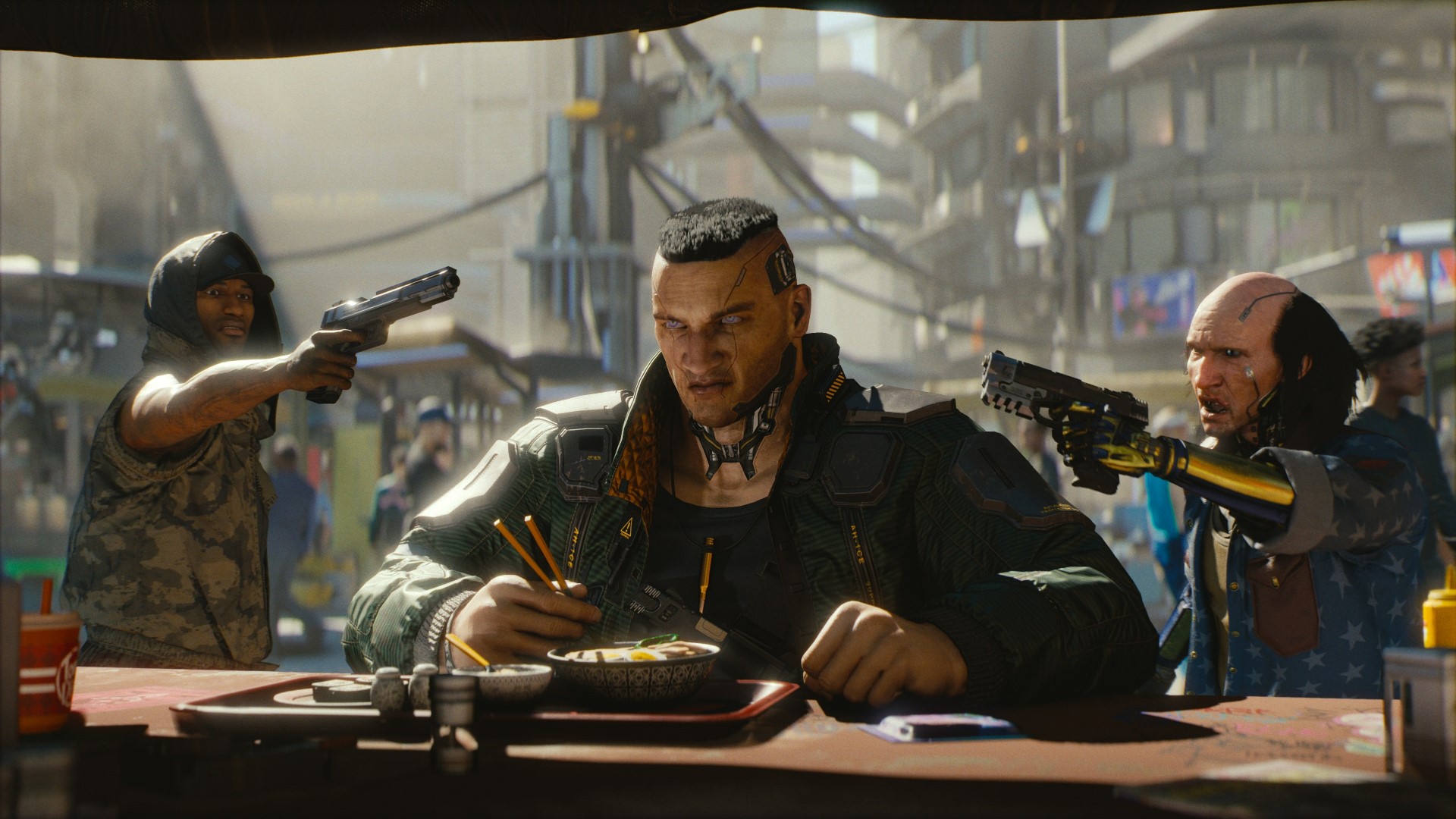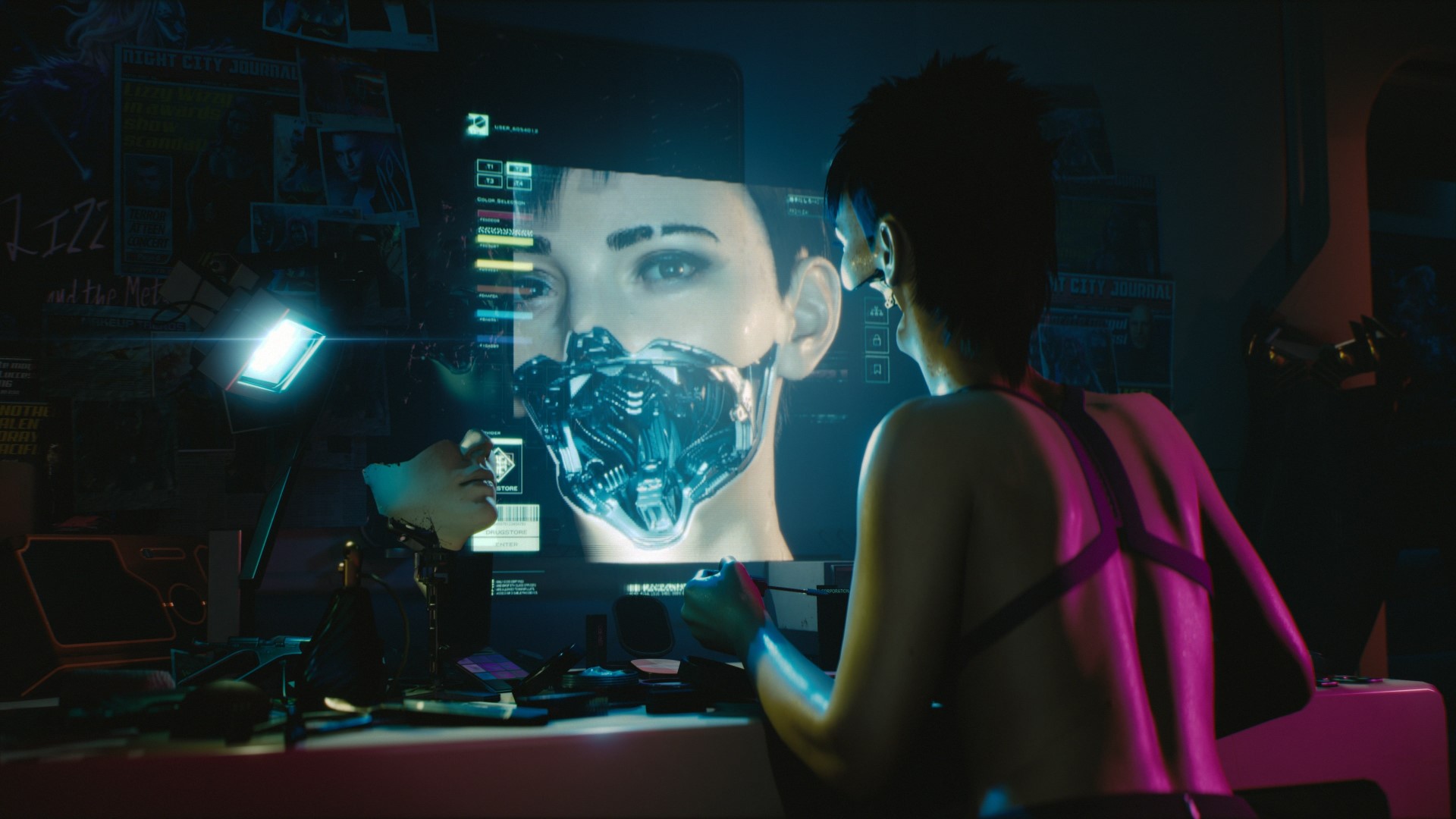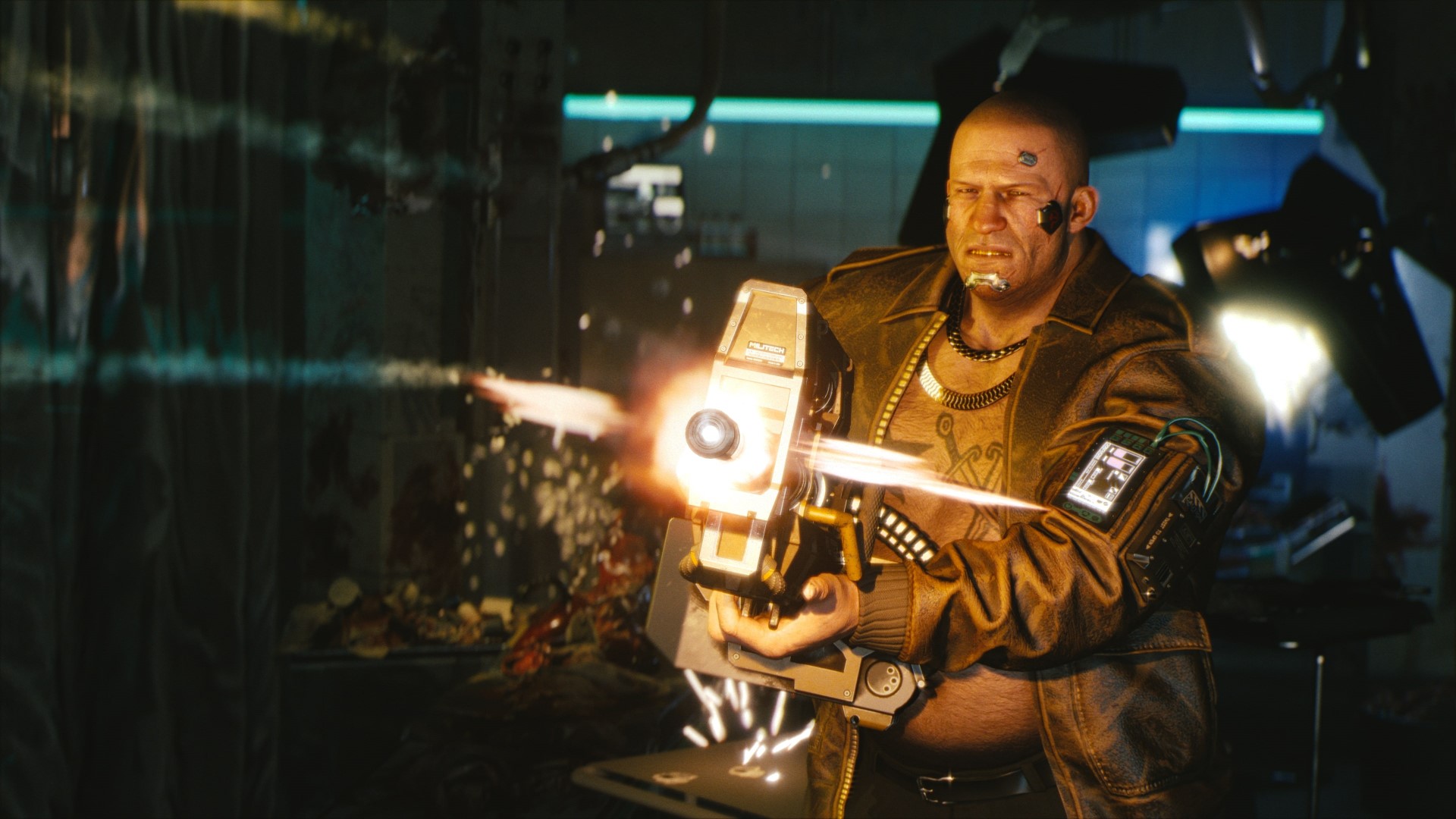Cyberpunk 2077’s biggest problem was never its bugs
Cyberfunk

Under cover of night, I sneak towards the warehouse. A quick scan of the area reveals a dozen goons of dubious intent. These are no ordinary cronies, either. The Maelstrom gang is tough and sport deadly cyberware. We’re talking massive cyborg arms and sinister laser eyes; if I provoke a fight, I’m as good as dead.
So it’s time for a different angle. I stick to the shadows, moving from cover to cover. Three goons are between me and the target. I hack a nearby vending machine, distracting my adversaries with flashing lights and loud noises. I dash towards the objective. My stealth challenge is completed, and it’s now time for me to decide whether or not the target should live or die. V, our scrappy underdog protagonist, had pulled through.
30 hours of play-time later, I find myself undertaking another gig in that part of town. By this point, I’ve got thirty levels under my belt and top-of-the-line cybernetics to boot. As I approach the gang hideout, I realize the tables have turned. I activate my advanced hacking suite and infect a nearby ganger with a cyber-psychosis virus. He turns on his friends in an instant, his spontaneous mutiny spreading fear and discord. I sneak past the brawl, though this is more a formality than a necessity.
After hours of play, my stealth has become lazy, and some gangers spot me. I go for my razor-sharp Monowire, and in seconds, three human beings have been sliced to ribbons, their bodies now a series of freshly diced chunks. It’s one heck of a power trip. However, one thing was clear: over the course of the game, V had transformed from a downtrodden mercenary to an unstoppable cyborg demi-god.
My winter playthrough of Cyberpunk 2077 was an absolute blast. Now that the game is (mostly) free of bugs, we are left with a tightly paced, well-written, and deeply immersive RPG that easily rivals The Witcher 3: Wild Hunt for complexity and depth, ranking among the best RPGs out there. However, the power fantasy facilitated by the later stages of 2077’s character progression system runs counter to the essence of the genre. It is difficult to revel in the noble futility of the cyberpunk struggle against powerful megacorporations when you can trivially murder other human beings with a mere thought. When you’re a demi-god, those nasty cyberpunk corps seem a lot less threatening.
A tale of two Night Cities

Spoiler Warning for Cyberpunk 2077’s main story.
Regarding its story beats, Cyberpunk 2077 does an excellent job conveying its genre's essence. At every turn, V’s rise to prominence in the mean streets of Night City is achieved through pyrrhic victories, all of which transpire in the shadow of their inevitable and unpreventable death at the hands of the Araskaka biochip implanted in their brain at the close of the game’s first act.
The noble futility of the cyberpunk struggle is written into every fiber of the main story. V must compromise their principles and suffer through myriad traumas to earn even the slightest reprieve from their impending death. Of course, come the end of the game, the best they can get is 6 more months of life. Cyberpunk 2077 boldly sticks to its guns in its commitment to delivering utter bleakness.
Get daily insight, inspiration and deals in your inbox
Sign up for breaking news, reviews, opinion, top tech deals, and more.
The noble futility of the cyberpunk struggle is written into every fiber of the main story
It is conspicuous, therefore, that this commitment does not extend to the title’s gameplay. While V continues their downward slide towards the deepest bowels of cyberpunk fatalism, their powers within the game itself only increase. In cutscenes, we see V cough up blood as they struggle with the physical toll of the Arasaka biochip. Ten minutes later, they’re back to trivially cutting scores of gangers to ribbons with all the ease of a butcher going to town on some salami.
We've got a city to burn

Cyberpunk 2077 is an excellent RPG in its current state. Free of the vast majority of the bugs that hindered the game at launch, CD Projekt Red’s foray into the dystopian future offers a satisfying and well-rounded experience that left me wanting more. However, the jarring dissonance between the bleak message of Cyberpunk’s central story and the chrome-fuelled power trip that is its late-game combat mechanics cannot be ignored.
She became a hawk in a city full of mice
Though it was not enough to undermine my enjoyment, it did leave a strange taste in my throat. As my V’s abilities became incredibly superhuman, the initially draconian rules of the heartless world she inhabited gradually became meaningless. She became a hawk in a city full of mice.
This is not to say that power trips always make for negative experiences – look at Doom Eternal. However, the cyberpunk fantasy is about rebellion and standing up to something far more significant and scarier than yourself. If your cybernetic enhancements and mountains of XP have turned you into the most terrifying thing in the city, can you really call yourself a rebel underdog anymore?

An editor and freelance journalist, Cat Bussell has been writing about video games for more than four years and, frankly, she’s developed a taste for it. As seen on TechRadar, Technopedia, The Gamer, Wargamer, and SUPERJUMP, Cat’s reviews, features, and guides are lovingly curated for your reading pleasure.
A Cambridge graduate, recovering bartender, and Cloud Strife enjoyer, Cat’s foremost mission is to bring you the best coverage she can, whether that’s through helpful guides, even-handed reviews, or thought-provoking features. She’s interviewed indie darlings, triple-A greats, and legendary voice actors, all to help you get closer to the action. When she’s not writing, Cat can be found sticking her neck into a fresh RPG or running yet another Dungeons & Dragons game.